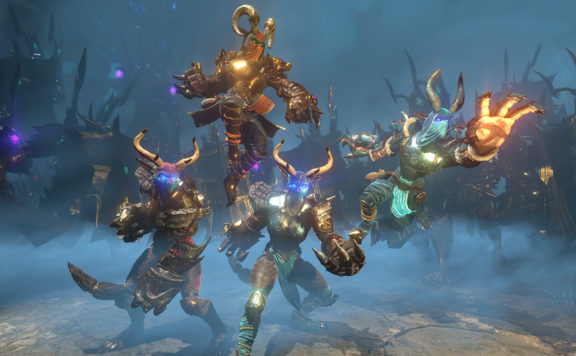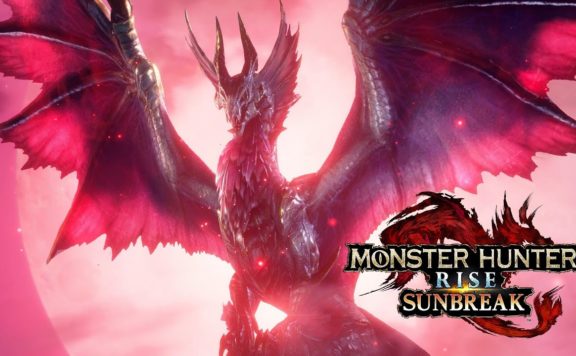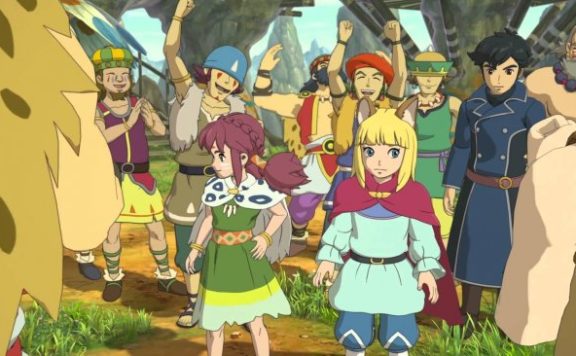So, you’ve delved the dungeons, slain the dragon and have returned not only alive, but craving more? Well then adventurer I have a few books that may be of interest to you.
For many people their first and last experience with Tabletop Role-playing will be Wizard of the Coast’s Dungeons & Dragons. It’s understandable; D&D is the best-selling role-playing game and has been for many years. To some it’s *the* role-playing game and is used to refer to all games in the genre, much like Kleenex and Coke have taken over as names for their respective product categories. It’s a game that has mass appeal, a long history, and great products. So why would anyone ever consider playing anything different?
Despite its popularity D&D can’t be all things to all people; and while it’s not obvious to many, we’re actually living in a role-playing renaissance. The sheer amount of quality games, adventures, and materials being put out by not only large and midsize publishers, but by individual independent writers and artists, are staggering. What I present here are three games that you can bring to the table as possibilities for your group. I don’t claim any are “better” than D&D, or any other game for that matter, but they’re all different, and all great in various ways.

Shadow of the Demon Lord designed by Robert J. Schwalb is probably the most traditional game on this list but is still hugely innovative. The setting is most decidedly dark fantasy, taking place on Urth as the forces of evil are poised for a near inevitable victory. The players take the role of survivors in this darkened landscape. Shadow of the Demon Lord is a game of small victories. You’ll be hard-pressed to save the world, but with a bit of luck and sheer determination you might just save a few people living in it.
The mechanics are in some ways very similar to those any player of the world’s most popular game would be used to. Utilizing a twenty-sided die (aka a d20), you attempt to roll above a given number. Where Shadow of the Demon Lord innovates is in the simplification of both determining that given number and the handling of the often myriad amounts of modifiers to a player’s roll. Shadow of the Demon Lord handles modifiers through a system of Boons and Banes. Boons are six-sided dice (d6’s) that are rolled in addition to the twenty-sided die (a d20) and added, while Banes are six-sided dice (d6’s) that are subtracted. Boons and Banes cancel each other out one for one. For example if a player was trying to climb a wall in the rain, you might give them two Boons for the easy hand holds on the wall, and their talent for climbing while giving them a Bane for the rainy weather. Ultimately the player would roll a d20 and one d6 and add the two together. For a majority of rolls outside of combat you’re merely looking for a ten or better. In the case of a player having two Boons or Banes on the same roll you take the highest value d6 and add or subtract that.
This makes for a game that feels much faster than what many players are used to, and removes many of the situations where players are left wondering what dice they should roll and what number they’re trying to get. You’re always rolling one d20, one to (rarely) three d6’s, and trying to get at least a ten.
Shadow of the Demon Lord does an amazing job of keeping things which many players find familiar while streamlining them enough to speed up game play without sacrificing some more detailed aspects of character customization.
Along with a great magic system, interesting turn system, deadly combat, and a detailed, dark setting Shadow of the Demon Lord is an excellent game for those groups who want to branch out from their normal game while still retaining a similar feel in game play and setting.
Both Shadow of the Demon Lord and Dungeon World innovate in a lot of great ways. However, at the end of the day they both evoke a similar feeling, a group of adventurers defeating or surviving opposition through the strength of direct combat. This isn’t a bad thing by any means but it’s a similarity they both have.
In contrast, playing Cryptomancer designed by Chad Walker *can* evoke those same feelings but with the added feeling of being in a high-tech espionage thriller. Think Jason Bourne with more hacking and more orcs… And sometimes hacking at orcs!
Cryptomancer manages this through its very detailed true to life explanation of networking and cryptography principles. This is a game that was designed by and for hackers. It takes place in a fairly traditional fantasy world but where mortals can interact with the Shardscape via magical gems known as Shards. They act something like rudimentary smartphones. These shards can then be encrypted through various means. The image to the left shows the process two people might use to encrypt a message with a passphrase.  What Mr. Walker did was take the idea that hacking isn’t a skill in and of itself (there’s no hacking roll in Cryptomancer) but rather the clever application of other skills designed to exploit a weakness. Using the image to the left as an example we can think of several ways a clever cryptomancer might decrypt that message. They might try to brute force it and just think of random strings of words (this is greatly elaborated on in the book) or they might manipulate Alice or Bob into revealing the key-phrase.
What Mr. Walker did was take the idea that hacking isn’t a skill in and of itself (there’s no hacking roll in Cryptomancer) but rather the clever application of other skills designed to exploit a weakness. Using the image to the left as an example we can think of several ways a clever cryptomancer might decrypt that message. They might try to brute force it and just think of random strings of words (this is greatly elaborated on in the book) or they might manipulate Alice or Bob into revealing the key-phrase.
Another great addition to Cryptomancer is while each player has a character they’re taking the role of, the group as a whole also has a hideout (with its own character sheet) which advances as the characters gain more (or better) networks of spies, thugs, and thieves.
This is all wrapped up in a very easy to understand dice rolling mechanic that has players rolling a five dice “pool” that consists of varying numbers of ten-sided dice (d10s) and six-sided dice (d6s) and looking for any dice above a given number for a success. It’s a great system that keeps things moving quickly.
Cryptomancer is a great game for many reasons, but above all what I’ve enjoyed about it is the ability to have a fairly traditional dungeon delve and then in the same session find myself trying to infiltrate a Shard network ran by corrupt merchants. Both of these sides of the game can be emphasized more or less depending on the mood of the group.
If you think your group would appreciate a change of pace from the usual dungeon delving and orc slaying (while still being able to do those things) then Cryptomancer would be a great choice.

Dungeon World designed by Sage LaTorra and Adam Koebel is, in my opinion, very near the finest example of a story driven role-playing game as you can get. Dungeon World itself is a sort of spin-off of another excellent game Apocalypse World. Pro Tip: if you’re ever cruising indie rpg’s and see the acronym PbtA that stands for “Powered by the Apocalypse”, meaning it’s another derivative of Apocalypse World, but ditches the Post-Apocalyptic setting for a more traditional fantasy dungeon delving game. That said, Dungeon World plays *very* differently than many games.
The narrative drives the game, meaning rather than the dice determining how the story resolves the story determines what dice you roll, which then feeds back into the story. If you’ve ever played a tabletop role-playing game and found that what should be an exciting exchange of punches, sword techniques and groin kicking got reduced to “I attack, oh I miss” and “The Orc attacks, he got me, I take 5 damage” then Dungeon World is exactly what you need!
The rules are so simple that I can explain 90% of the game right here. The player (the GM never rolls dice) rolls two six-sided dice (d6’s), adds them together, and adds a number from one of their stats. If the total is ten or more the player gets what they want, if the total is seven to nine the player gets some of what they want with some bad consequences. Finally, if the total is six or less the player gains an experience point and something bad happens. That’s it. Those are the rules. So why would you play it? Dungeon World does an amazing job of taking away all the things that get in the way of telling a story in other games. It puts creativity into the hands of the GM *and* the players alike and gives them the tools to collaborate and tell the story they both want to hear.
Now, Dungeon World is not for everyone, no game is. If you’re the kind of player that enjoys playing role-playing games for gathering new weapons, armor, and treasure you’ll likely not enjoy Dungeon World. If you’re the kind of player who enjoys a lot of character customization and finding that optimal build you’ll likely not enjoy Dungeon World. Also, if you’re the kind of player who can’t stand failing a roll (failure is the main method of advancement) you’ll likely not enjoy Dungeon World.
Moreover, Dungeon World demands a different kind of skill set from anyone who decides to run the game. It’s more of a collaborative effort between the GM and the players with both equally contributing to the world and its events. It will test any GM’s ability to improvise and think quickly. So much so that if any readers are regularly running a game and find themselves getting flustered when your players go off the rails I’d highly suggest Dungeon World as a way to improve those improv skills.
With all those caveats aside I cannot suggest enough that you give Dungeon World a try. I’ve been running a campaign weekly for about the past six months. All my players come from previously playing D&D and all of them have outright told me they would have trouble going back. If what you want out of a role-playing experience is a great story, there are very few games, if any, that do it as well as Dungeon World.
So there you have it! A set of three great games that should be welcome at any table. This doesn’t even begin to scratch the surface of what else is out there though. I purposely chose for this list games that I felt still would appeal to someone who already enjoyed fantasy based gaming. In the future I’ll likely do an article examining some great games from completely different genres. As always though this is just as much about you the reader as it is about me. If there’s something you want to see me write about, whether it’s Role-Playing games, Board games, or anything else just let me know. Until next time keep on rolling and don’t be afraid to leave it all on the table!






